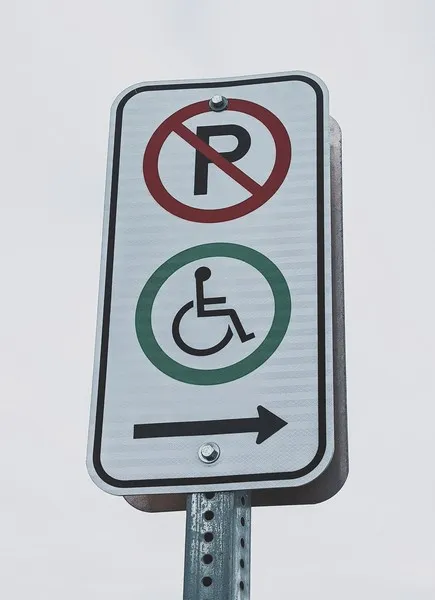Table of Contents
- Defining Scapegoating
- Historical Context
- Theoretical Perspectives
- Social Identity and Group Dynamics
- Consequences of Scapegoating
- Strategies to Mitigate Scapegoating
- Conclusion
Scapegoating stands as one of the most enduring social phenomena in human history. In its simplest form, scapegoating refers to the act of attributing blame or responsibility to an individual or group for problems that are often complex, systemic, or not fully understood. Despite its simplicity as a concept, scapegoating has intricate layers of social and psychological underpinnings that allow it to persist in various societies and historical contexts. This article provides a sociological introduction to scapegoating, addressing its theoretical foundations, societal implications, and possible ways to mitigate its harmful effects.
Defining Scapegoating
Before delving into the deeper sociological facets, it is important to clarify what scapegoating means in practical and everyday terms. At its core, scapegoating is the process of selecting an individual or group to bear the blame for circumstances that they did not create or problems that go far beyond their influence. In many cases, the scapegoat is someone who is already marginalized or different, making them a convenient target.
Why does scapegoating happen in the first place? Sociologically, people often seek simplistic, singular causes for multifaceted social or economic challenges. Instead of recognizing these challenges as complex phenomena—such as economic downturns caused by global factors—groups may converge on a symbolic representation of all those difficulties. In such cases, the scapegoat becomes the embodiment of perceived threats, even though they may have only a minor role, if any, in creating them.
Key Characteristics
- Displacement of Blame: One individual or group is singled out to take responsibility for issues that stem from broader societal dysfunctions.
- Marginal Status: The scapegoat is commonly selected from a group that is already vulnerable or perceived as ‘outsiders.’
- Simplicity: Scapegoating offers a deceptively simple solution, allowing groups to avoid grappling with the more complex roots of social issues.
- Reinforcement of Group Identity: By placing blame on an ‘other,’ the dominant group solidifies a sense of unity, even if built on flawed assumptions.
Historical Context
Scapegoating has deep historical roots that stretch back to ancient ritual practices. The term itself originates from an ancient tradition in which a community symbolically placed its collective sins onto a goat and then expelled or sacrificed this animal to purify the group. While modern societies might have abandoned literal ritual sacrifice, the concept remains eerily similar: a community or group channels its anxieties, fears, or resentments onto a chosen target to maintain internal cohesion or psychological comfort.
Examples throughout history highlight how scapegoating can shift from one group to another, depending on shifting social or economic climates:
- During economic downturns, immigrants or minorities might be blamed for ‘stealing jobs’ or putting a strain on public resources.
- During times of political unrest, certain political factions or religious groups can become the focus of blame for broader social anxieties.
- In wartime, entire ethnic populations have been singled out as enemies or threats to national security, leading to discrimination or even large-scale forced relocation.
Over centuries, different societies have found their own targets—sometimes based on religious affiliation, sometimes on race, class, nationality, or even profession. The key commonality remains the function that scapegoating plays in directing negative sentiment away from more complex issues and toward an easily identifiable group or individual.
Theoretical Perspectives
From a sociological standpoint, scapegoating is not merely an irrational or arbitrary activity. Rather, it can be analyzed through the lens of several major sociological theories, each providing insight into why groups might turn to scapegoating and how it operates within social structures.
Functionalism
Functionalist theorists focus on the functions that various social phenomena serve for the stability and cohesion of society. Within a functionalist framework, scapegoating can be seen as a mechanism that upholds social order in the face of mounting tensions. By designating one individual or group to carry the burden of blame, the rest of society can temporarily relieve itself of anxieties and conflicts. In this sense, scapegoating acts as a kind of social ‘safety valve,’ channeling public frustrations away from the real systemic issues.
However, this function comes at a cost. While scapegoating may momentarily preserve unity among the majority, it does little to resolve the underlying problems. Over time, relying on scapegoating can reinforce existing social hierarchies and inequities, making it harder to address genuine structural deficiencies.
Conflict Theory
Conflict theorists, drawing heavily from the work of Karl Marx and later scholars, view scapegoating as an instrument of power. Groups that hold economic, political, or social power may encourage scapegoating to divide potential opposition or to distract the public from real systemic inequalities. For example, a political regime faced with economic or social unrest might label a specific minority group as responsible for widespread unemployment or rising crime rates.
In such scenarios, scapegoating serves to splinter potential class unity. If different groups within the lower and middle strata direct their frustration toward each other—rather than the policies or systems that perpetuate inequality—these powerful elites remain unchallenged. Therefore, from a conflict perspective, scapegoating perpetuates oppression and maintains existing power imbalances.
Symbolic Interactionism
Symbolic interactionists emphasize the role of everyday interactions, symbols, and interpretations in shaping social realities. From this viewpoint, scapegoating arises through the shared meanings and labels that people attach to certain groups or individuals. If a group is widely perceived as deviant or threatening, even without evidence, these perceptions solidify over time through daily social interactions, mass media representations, and cultural narratives.
Scapegoating thus becomes a process of symbolic labeling: an entire group can be collectively labeled as ‘dangerous’ or ‘incompetent.’ Once this label is internalized by the broader society, it justifies discriminatory treatment and further stigmatizes the scapegoated group.
Social Identity and Group Dynamics
Get the full article AD FREE. Join now for full access to all premium articles.
View Plans & Subscribe Already a member? Log in.





